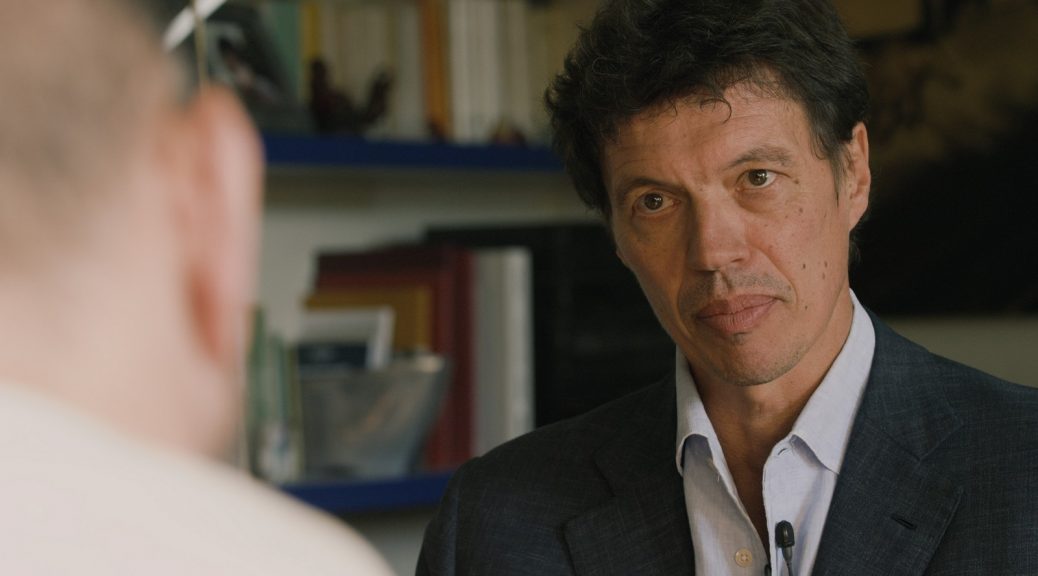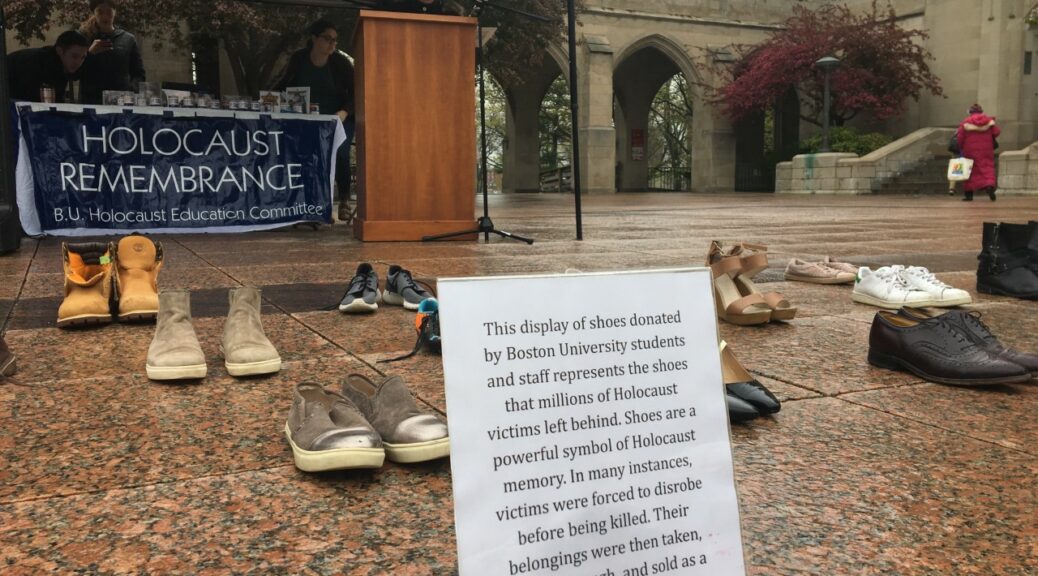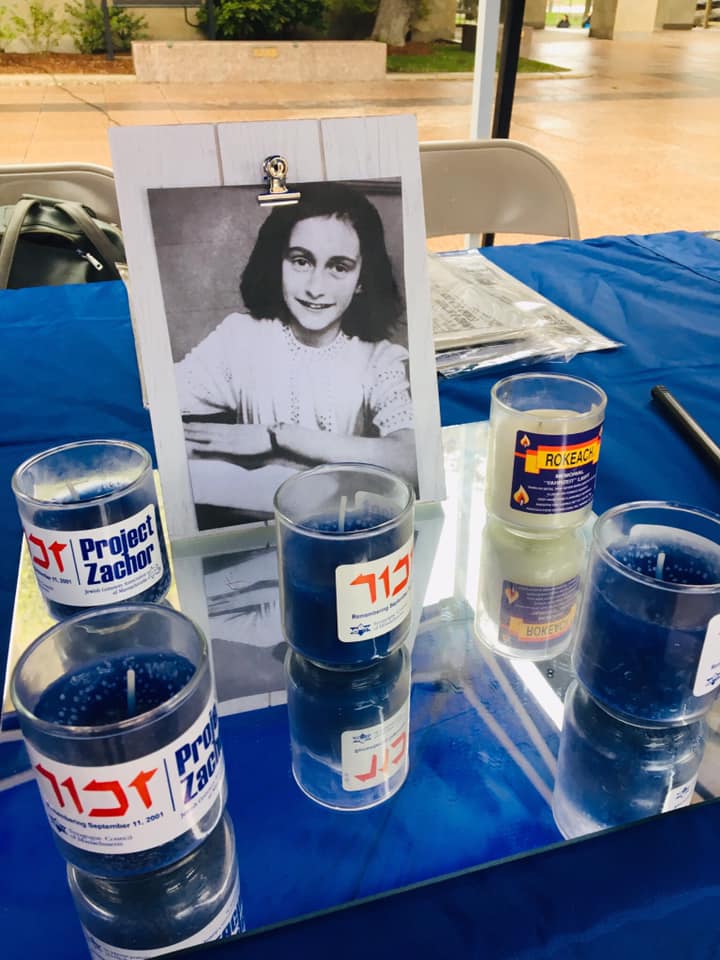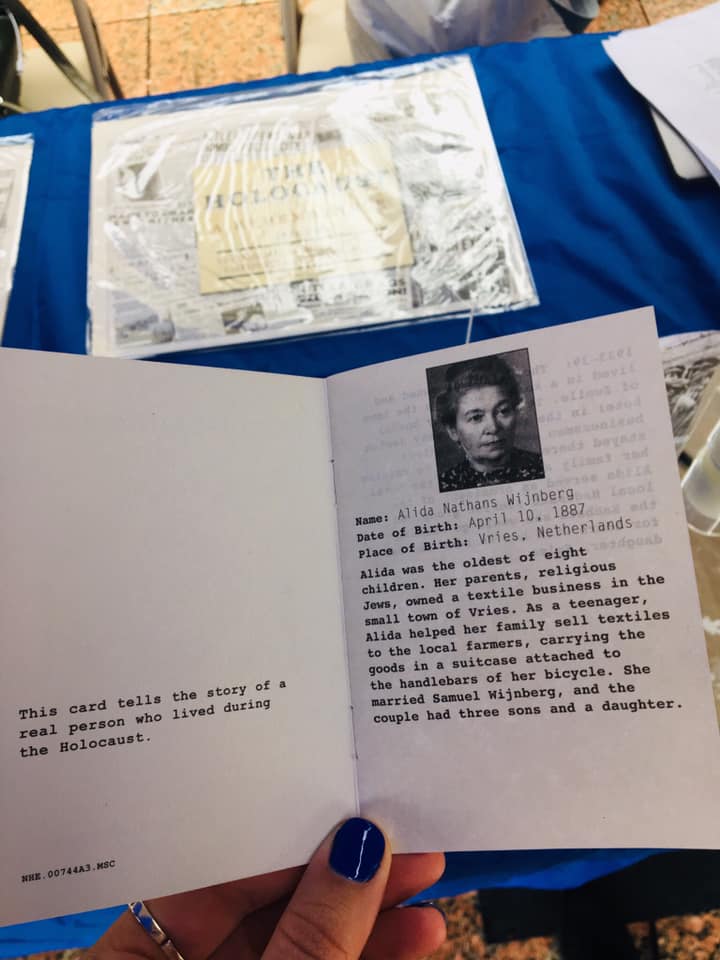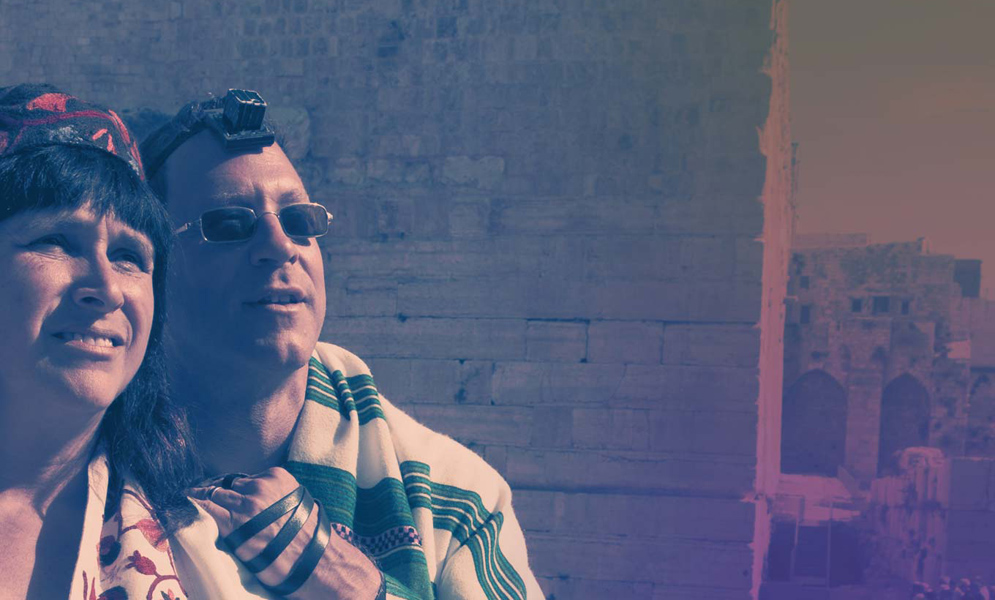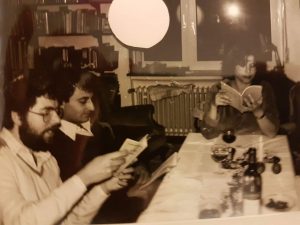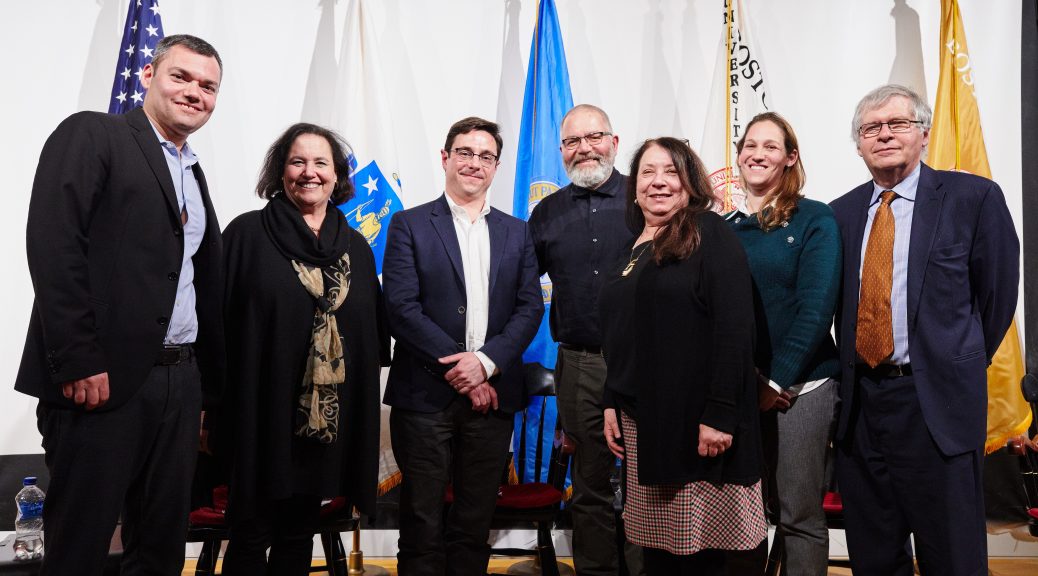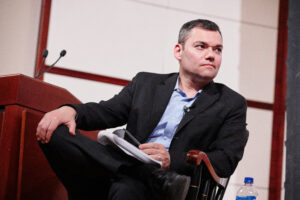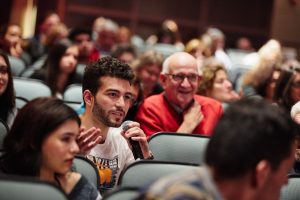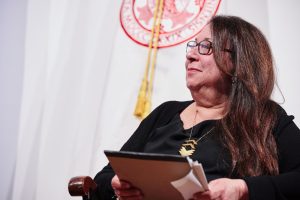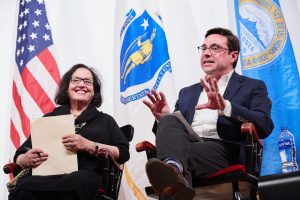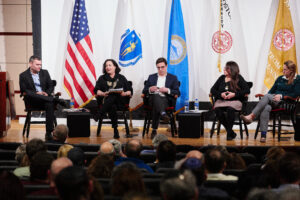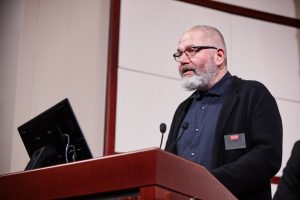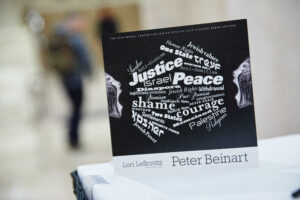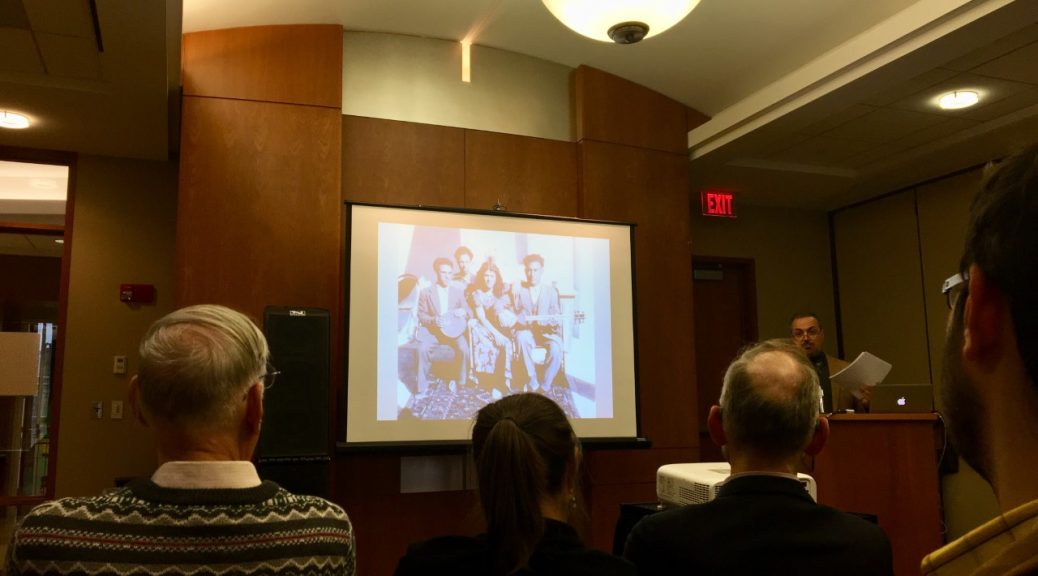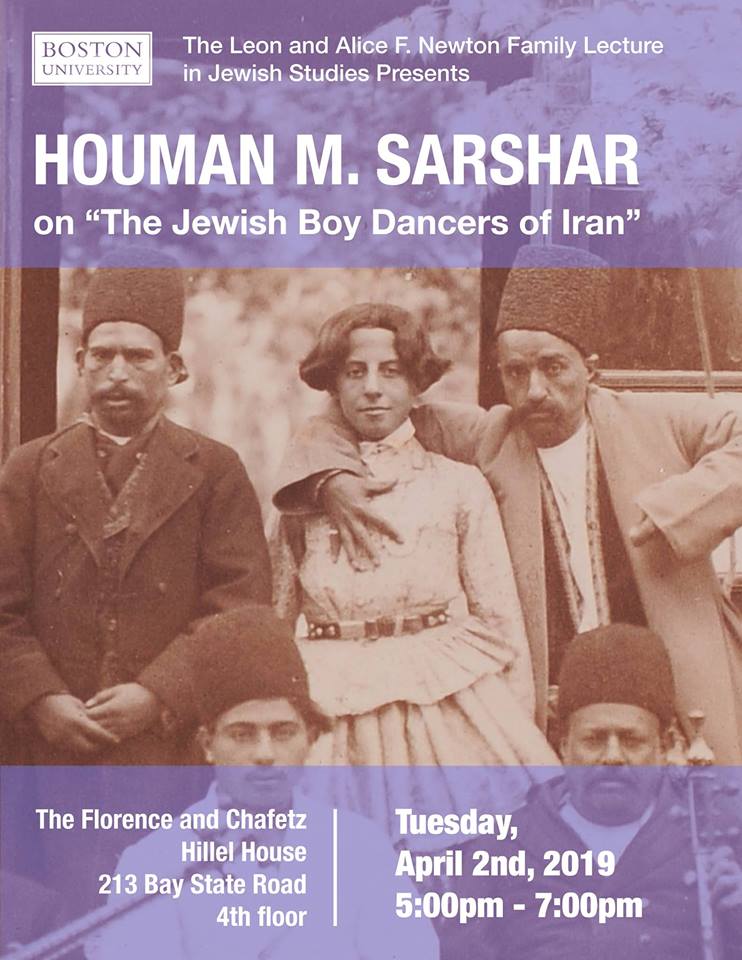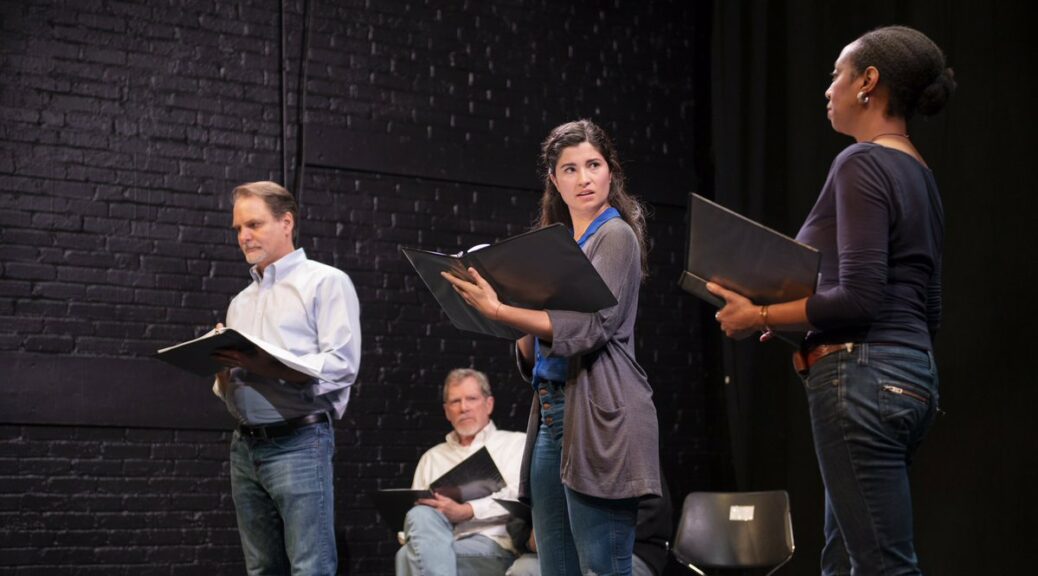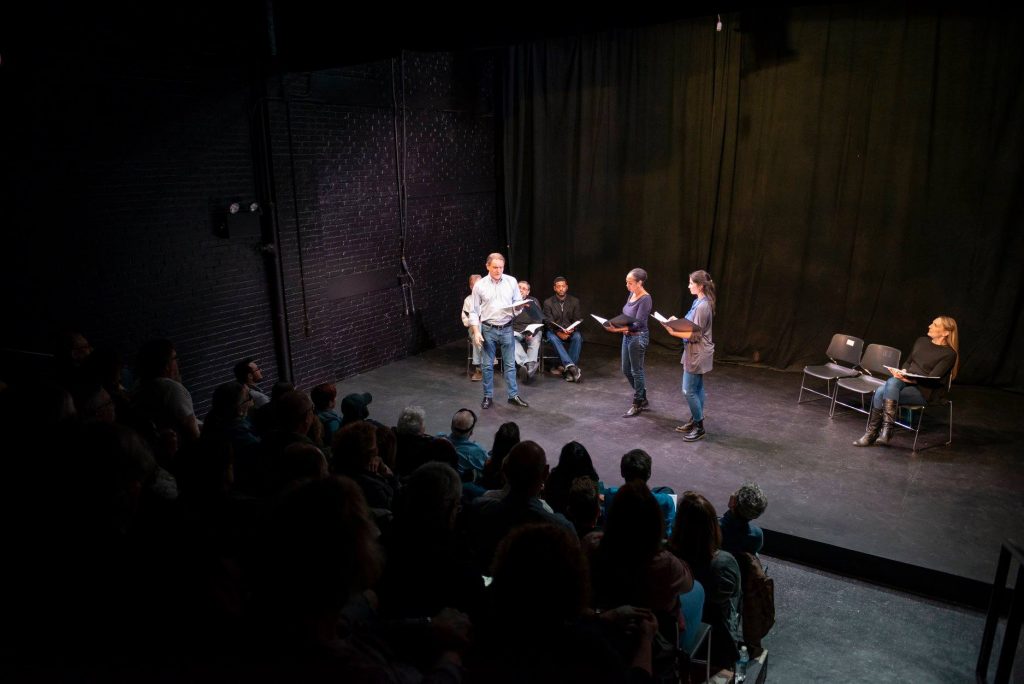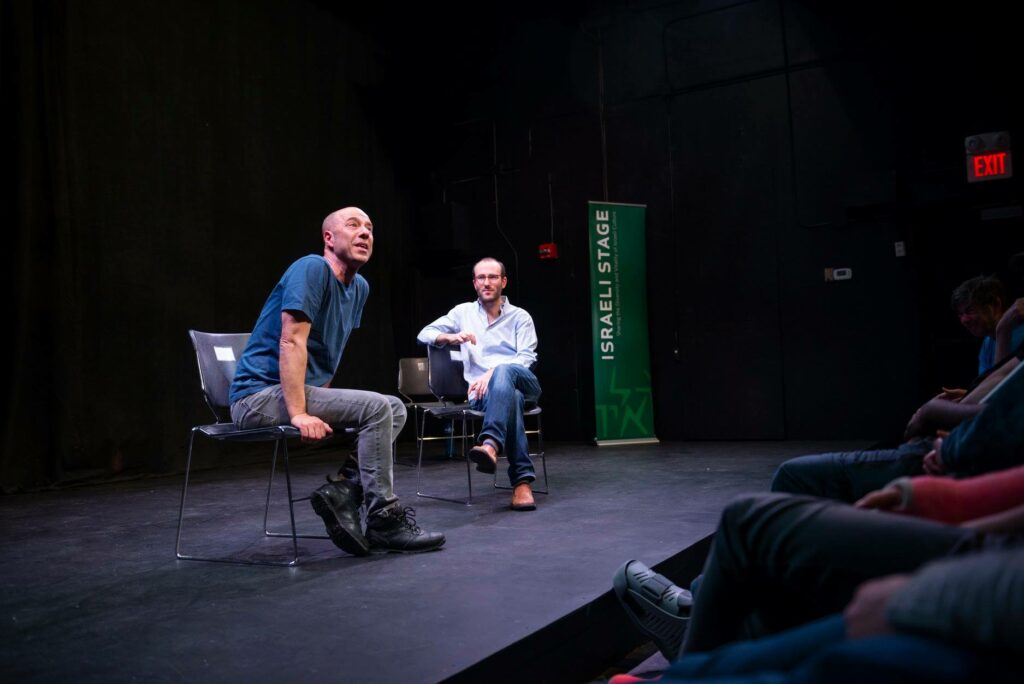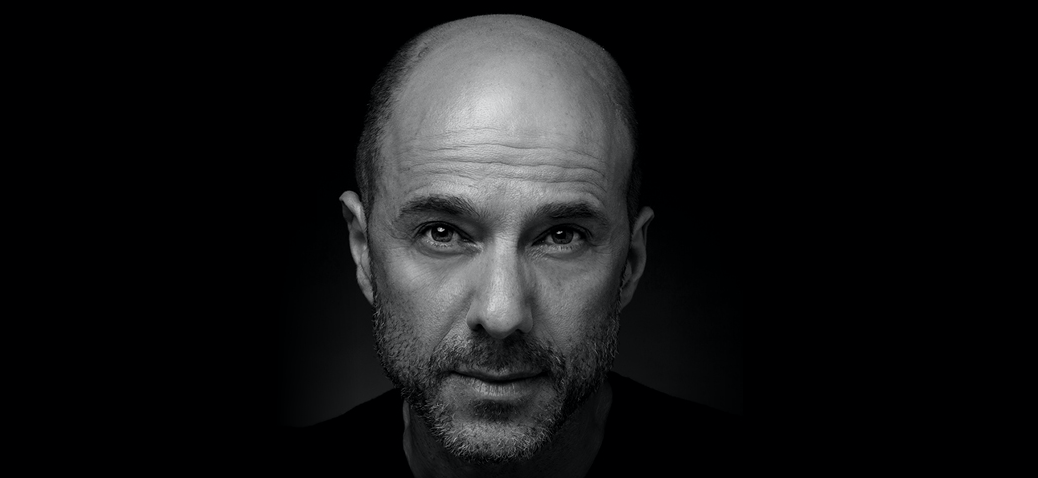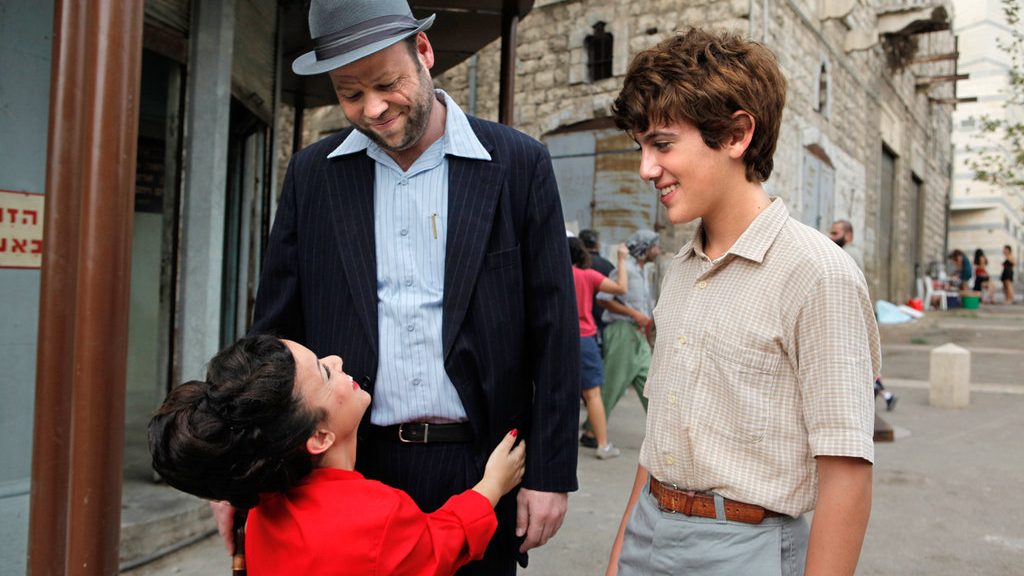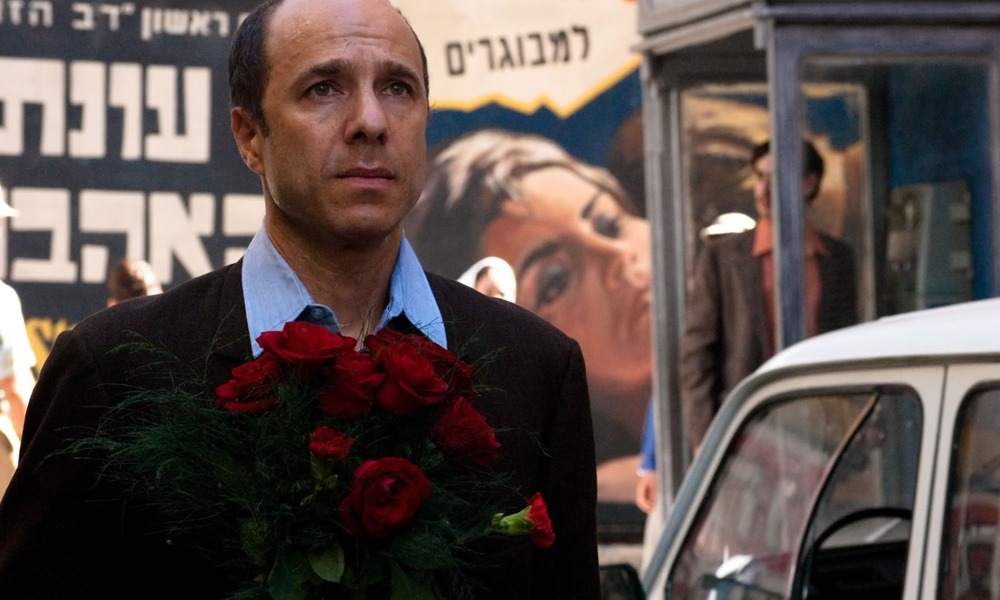By: Katherine Gianni
Pietro Suber does not shy away from difficult conversations. Instead, the award-winning journalist and documentary filmmaker has built his career on sharing challenging subjects and stories. Tuesday, April 29, was no exception, as Mr. Suber joined members of the BU community for the U.S. premiere of his latest film, ‘1938: When We Found Out We Were No Longer Italian.’
“The film came out last year with many accolades and positive reviews, and it’s a really special opportunity for us to be able to see it in the presence of the director,” said Professor of Italian and director of Holocaust, Genocide, and Human Rights Studies Nancy Harrowitz in her welcoming remarks. Mr. Suber was joined by Italian film expert Claretta Tonetti and distinguished journalist Alexander Stille for a panel discussion following the screening.
The documentary served as the culmination of the Spring 2019 Holocaust Through Film series that Professor Horowitz organized with Jennifer Cazenave, assistant professor of French and author of a forthcoming book on the outtakes of Claude Lanzman’s Shoa. The film explores stories of survival from Italian Jews who lived through height of fascism under Benito Mussolini and the subsequent rise of the Italian racial laws of 1938. Once enacted, these laws imposed racial discrimination in Italy towards Italian Jews.
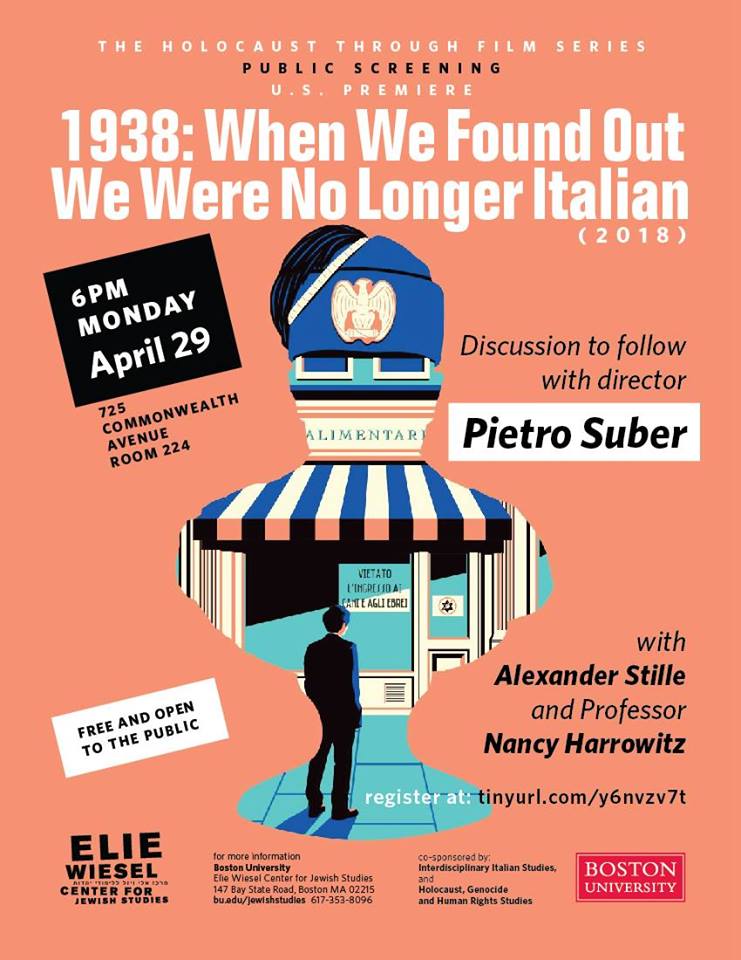
The venue was packed with hundred plus guests who watched attentively as various survivors appeared on screen, speaking candidly of their experiences. Emma Alatri, an Italian Jew, described the pain and embarrassment she endured as a young student when she found out she was no longer allowed to attend her public school. Italian Jews were barred from many educational institutions, one of many measures imposed by the regime’s anti-Semitic turn.
Racial exclusion involved the denial of employment opportunities, restrictions on travel, the stripping of financial assets, and slashing of civil rights. Mr. Suber divided the documentary into several subsections, each of which focused on a different aspect of the law and its effects on the lives of Jewish Italians.
The film was also attuned to issues of the present, namely the legacy of the laws and the Manifesto of Race, the rise of CasaPound Italia, a neo-fascist political party, and the “divided memory” of the past between Jewish and non-Jewish Italians.
In one scene a Jewish survivor questions the past actions of her non-Jewish friends. “Did our neighbors betray us because they believed the ideology? Or was it opportunism on their part?” she asked solemnly.
To this day, in Italy, there are many statues, squares, and streets meant to memorialize and celebrate those who pushed an anti-Semitic agenda. During the post-screening talkback, Ms. Tonetti explained that the current Mayor of Rome, Virginia Elena Raggi, has been vocal about removing memorials to people associated with anti-Semitism. Mr. Suber agreed, that there has been a greater call to action for removal in recent years.
One audience member asked whether Mr. Suber had considered creating a fictionalized version to share the history of Jewish Italians under the Fascist regime. Responding in Italian, Mr. Suber emphasized the power and importance of stories as told by their actual protagonists. “Pietro said, he thought about that in terms of the narrative structure, but he has dedicated himself to documentaries,” Ms. Tonetti translated. “He feels it is his duty and that his professional research should be by directly contacting these people and sharing their personal stories.”
We thank Professors Harrowitz and Cazenave for bringing the Holocaust Through Film Series to Boston University and hope we will see more in the future!

